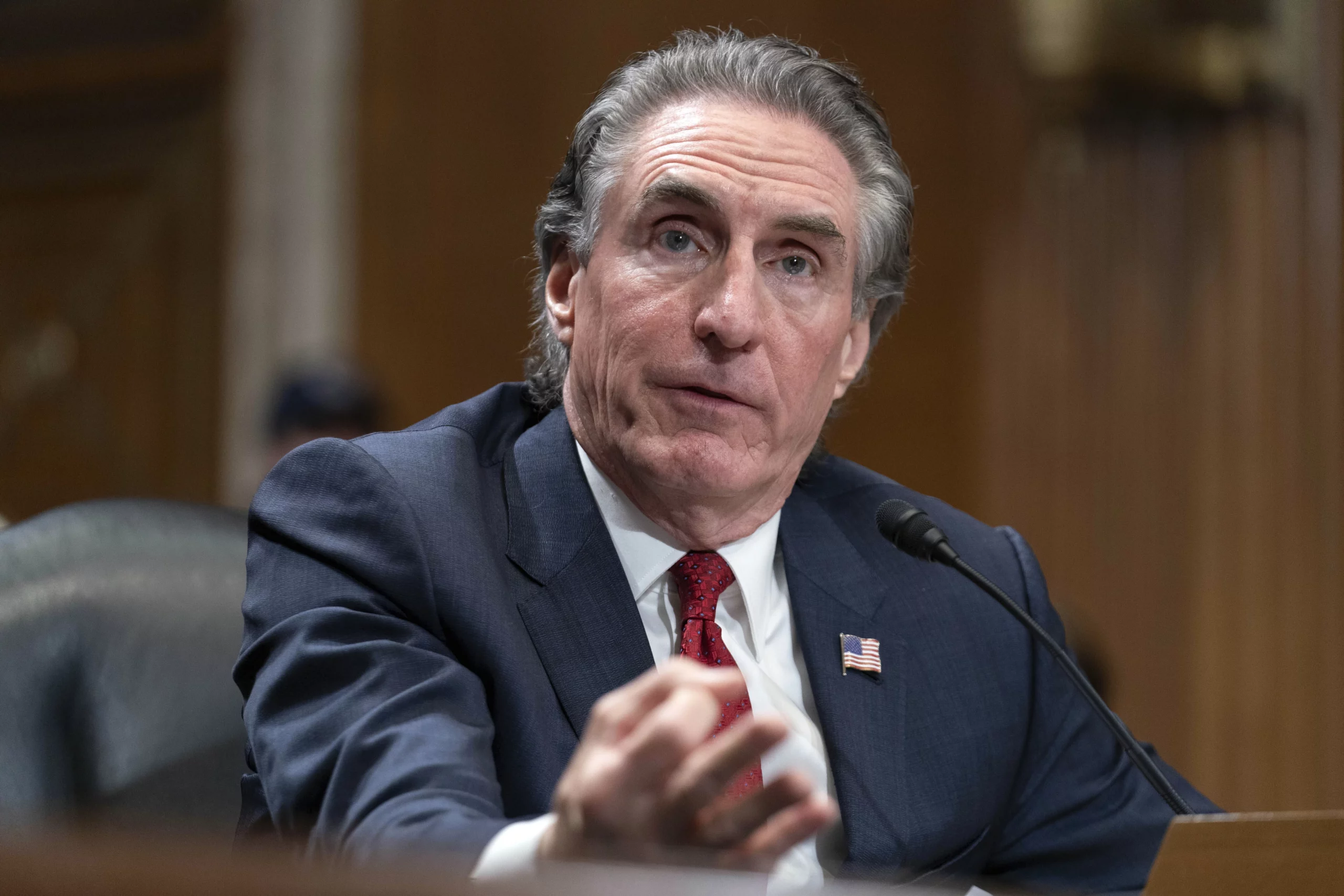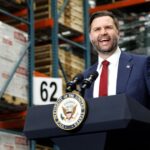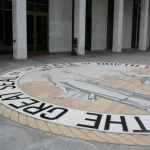
Former North Dakota Gov. Doug Burgum promised to maximize drilling on federal lands at his confirmation hearing for interior secretary Thursday, calling the incoming administration’s goal of “energy dominance” the surest way to guarantee America’s national security.
“When energy production is restricted in America, it doesn’t reduce demand, it just shifts production to countries like Russia, Venezuela, and Iran, whose autocratic leaders don’t care about the environment,” Burgum said in his opening statement.
“In our time, President Trump’s energy dominance can be America’s ‘big stick’ that is leveraged to achieve historic prosperity and world peace,” he added. “The Department of the Interior, in cooperation with U.S. Congress, this committee, and the states, will play a pivotal role in achieving the outcomes to make the world safer and America even better for our children, grandchildren, and generations to come.”
Burgum, the chief executive of energy-rich North Dakota until 2024, faced questions about climate change, renewable energy, and plans to expand oil and gas leasing as President-elect Donald Trump’s choice to lead the Interior Department. He alluded to technology such as carbon capture to reduce the impact.
“I believe climate change is a global phenomenon, for sure,” Burgum said in response to a question from Sen. Angus King (I-ME), asking if he believed climate change was a problem.
The nominee did not face any questions about conflicts of interest after a watchdog group said his personal and financial relationship with Harold Hamm, the billionaire founder of Continental Resources, could complicate his capacity to oversee the federal oil and gas leasing program.

The Interior Department has had a history of ethical concerns. During Trump’s first term, Interior Secretary Ryan Zinke resigned from his post in the face of at least six investigations into ethical misconduct allegations and other possible violations.
Burgum said resources such as natural gas and coal from federal lands could provide more electricity, which could then support the growth of the artificial intelligence industry. The interior nominee, a former software industry entrepreneur who grew up on a farm, launched a 2024 presidential run of his own but then endorsed Trump after he dropped out in 2023.
Throughout the latter part of the campaign, Burgum acted as a public surrogate and liaison to fossil fuel executives. At one time, Burgum was under consideration to become Trump’s running mate.
Burgum argued that maximizing energy output can lower prices while also ensuring environmental conservation. His stance would signify a major change in policy after the Biden administration attempted to cut down on oil and gas drilling in an effort to reduce greenhouse gas emissions.
In recent days, Biden issued an executive order to ban new drilling off the entire East Coast and the coasts of California, Oregon, and Washington state.
The Interior Department oversees a large swath of federal land and areas offshore, including regions that produce a quarter of U.S. oil. Burgum has been tapped to lead the department and the new National Energy Council, which is tasked with promoting oil, gas, and other energy development.
Democrats on the committee questioned Burgum on whether he would allow leases for drilling operations on protected lands. Sen. Mazie Hirono (D-HI), in particular, pressed the former North Dakota governor on whether he would allow less restrictive protections at Bears Ears National Monument in Utah, which could allow the expansion of drilling, mining, or other commercial uses.
During Trump’s first administration, he redrew the monument’s boundaries, marking one of the largest reductions of federal land protections in U.S. history. The Biden administration restored the original boundaries in 2021.
“If you are ordered by the president to act in a manner that is counter to the department’s mission or Constitution, such as Bear Ears National Monument, will you do as the president asked, because he wants to drill in that monument?” Hirono asked.
“Senator, as part of my sworn duty, I’ll follow the law and the Constitution, so you can count on that,” Burgum responded. “I have not heard of anything about President Trump wanting to do anything other than advancing energy production for the benefit of the American people.”
Sen. Maria Cantwell (D-WA) also brought up the issue of expanding oil and gas leasing into Bears Ears amid concerns that energy production could come at the cost of hurting tourism.
“I wasn’t for expanding oil and gas leasing into Bears Ears, it’s a beautiful protected area,” Cantwell said. “I don’t want offshore drilling off the coast of Washington. I’ve got a marine sanctuary. … I have the Cascadia fault line. I mean, I could have devastation to an economy that’s paying dividends, why would I want to do that?”
Cantwell asked whether Burgum would prioritize the federal land leases that already exist or if the department plans to open up more federal lands to new leasing, but the nominee did not directly answer.
“What I’ve seen during my time as governor is not that we have existing, but we are restricting legal access for development or timber or oil and gas or whatever on public lands today by illegally not holding the leases that should have been held,” Burgum responded.
Committee Chairman Mike Lee (R-UT) disputed reports that the incoming administration is attempting to drill in Bears Ears National Monument.
“It’s a paranoid fantasy, it’s not a thing,” Lee said. “The dispute here is about the process by which it was designated, unilateral presidential action taken without consultation.”
Trump campaigned on a promise to “drill, baby, drill.” He also has advocated ending the development of wind energy, which competes with fossil fuels. Under Burgum’s leadership as governor, North Dakota expanded wind power in recent years. King pressed Burgum to convince Trump to reconsider his stance on renewable energy such as offshore wind.
“I hope you can talk to the president about the fact that wind has its virtues and can contribute significantly,” King said during his questioning.
“Certainly, you’ve got great wind resources in Maine, we’ve got good wind resources in North Dakota,” Burgum said. “Not every state is lucky to have the resources that we do. We’ve got to have the right balance, and maybe we have tipped a little too far in one direction.”
Sen. Alex Padilla (D-CA) referenced the devastation of recent fires in Southern California and asked Burgum whether federal disaster aid should come with or without conditions, as Trump and Gov. Gavin Newsom (D-CA) feud over the assistance.
“I think each situation would vary,” Burgum said, sidestepping the question.
“Would you commit to responding to every disaster with as much support and resources possible, regardless of which state or jurisdiction the disaster is in?” Padilla asked in a follow-up question.
CLICK HERE TO READ MORE FROM THE WASHINGTON EXAMINER
Burgum said “absolutely” and that he would be willing to go a step further.
“It’s probably time for all of us together to say, ‘What could we be doing differently?’” Burgum said.







